Now THAT’S A Puzzle!
I just got back from a grueling trip to southernmost Texas and back. Given my disinclination to subject myself to the romantic advances of blue-gloved airport goons I drove the 4,000+ miles from the Mid-Atlantic to McAllen TX and back.
The purpose of the trip was to revisit the International Museum of Arts and Sciences and dismantle and pack a Smithsonian exhibit that has been under my care for several years, a 1/5 scale model of the 10,000 Springs Pavilion in Beijing’s Forbidden City. You can see more information about the original structure here, and the recent exhibit here . (make sure to watch the videos of us moving the giant framework and roof)
As had been the case in each of the exhibit’s previous venues, several volunteers came along at their own expense to make it happen. Long-time friends Rick, Bill, and John joined me again and we worked together like a well-oiled machine, getting the job done in about 60 man-hours.
The Pavilion model is an amazing contemporary artifact fabricated from thousands of carved and joined pieces of Red Sandalwood that have been assembled into about 800 pieces.
The artistry is breathtaking, and the ~2,500 pound mass of the item is really impressive. I have been asked to continue stewardship of this exhibit even though I retired from the Smithsonian last December, in great part due to the fact that I am about the only person aside from the original makers who knows how it all goes together. Plus, I genuinely enjoy working with my colleagues from the Office of Smithsonian Affiliations. This particular 3-D puzzle came with no instructions other than the Chinese figures carved into or written on it. Over the years my team and I have deciphered it well enough to make it happen (with the spectacular help of a maitre-de from a Queens NY Chinese restaurant who translated some of the scrawled pictograms) so the list of folks who could even do the job is pretty small.
First comes the really easy part, removing the railings and stairs.
Then comes the doors and window grilles, all carved from solid Red Sandalwood.
The lower roof sections are tricky as they weigh a lot and are tenuously interlocked. If one fell on your foot you would have at least several broken bones for sure.
Taking them out safely, and placing them in the fitted cases requires teamwork and steady choreography.
One of the highlights is the ceremonial removal of the elaborately carved two-part finial on top. This piece was John’s turn.
Each piece goes into its own fitted compartment.
My own contribution to the exhibit was this 5-foot-tall, 1/2 scale model of the construction of the post/beam/roof assembly. It has been very well received, as the scale of the pavilion is so small the visitors have difficulty figuring out how it all goes together.
As the pavilion comes apart one piece at a time, the eventual skeleton of the magnificent artifact becomes almost forlorn.
A highlight of the IMAS that I finally had time to enjoy was the adjacent gallery, where a spectacular exhibit of Tiffany stained glass resides. I sat for several minutes in the silent darkness, imbibing the masterpieces there. If you are in the neighborhood of south Texas, make plans to go and enjoy them yourself.
The Pavilion exhibit is not currently scheduled for another venue, but if one comes up I will be sure to let you know.
There is more stuff about the pavilion exhibitions here
http://www.blog-affiliations.org/?p=2548
http://www.si.edu/mci/pavilion/pavilion.html

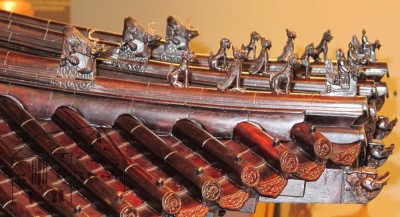

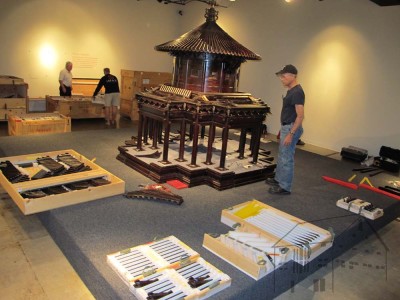

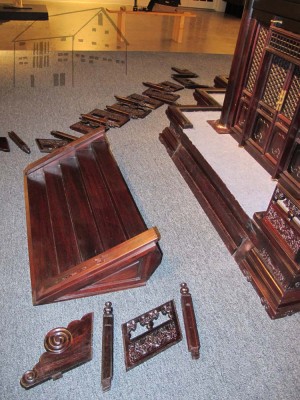
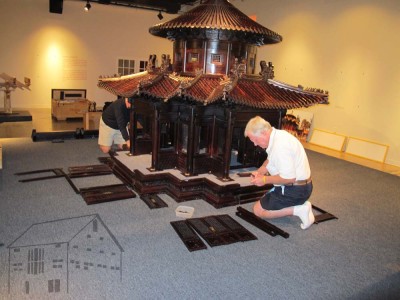
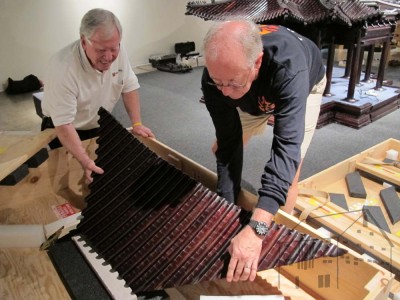


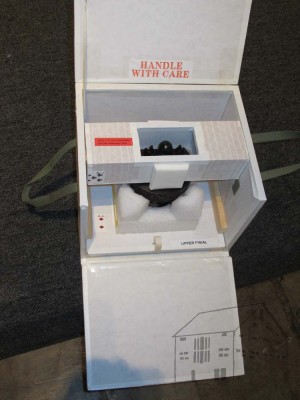
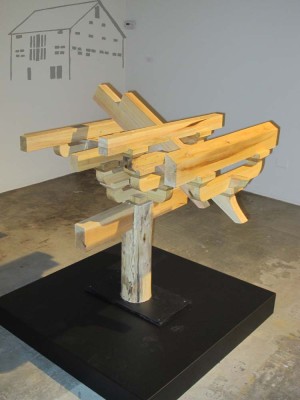
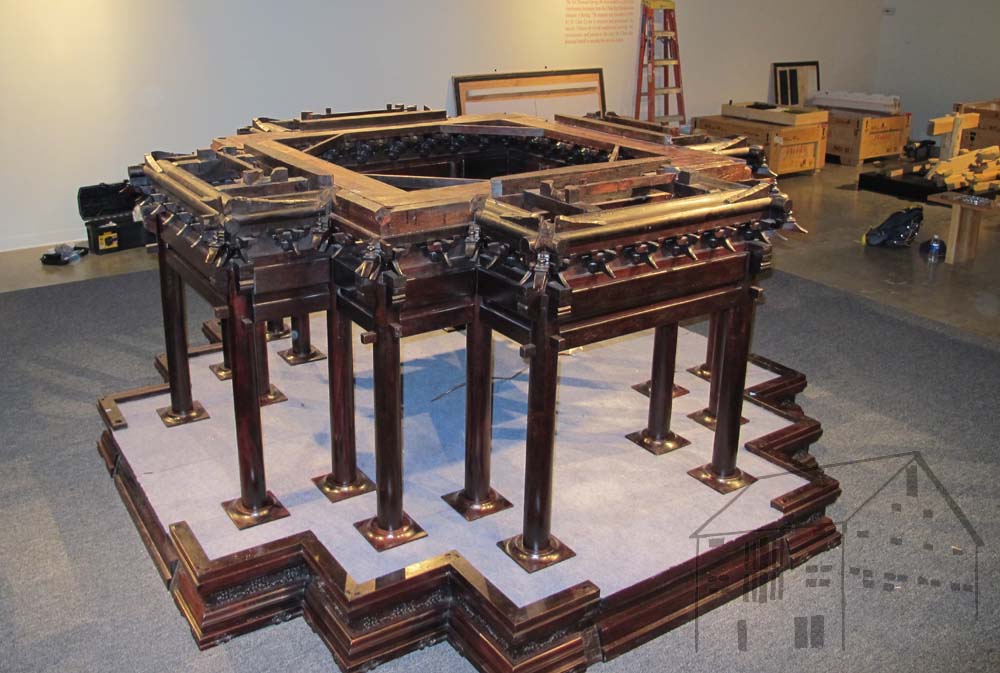
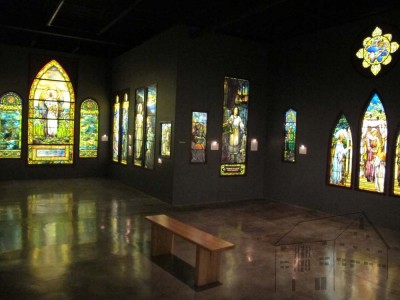

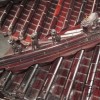



Join the Conversation!